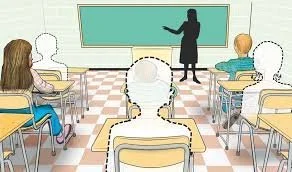EDU Trending: Look Before You Leap.
Finally, a reasonable response to ChatGPT! A look before you leap approach grounded in common sense.
Since its appearance a little more than two years ago, the OpenAI bot has elicited explosive reactions. Educators and parents feared that students would use the bot to do homework and writing assignments. Concerns over cheating and truncated learning led to a ban of ChatGPT in many school districts worldwide.
Hopefully, calmer heads will prevail. Some university educators - three from the U.S. and one from the U.K. – suggest we rewind and take a long look at how AI in general and ChatGPT in particular can be true educational tools - assets rather than mechanized instruction masquerading as new age learning. Their suggestions are well-considered, thoughtful, and measured. They do not pretend their ideas are definitive or will work long-term. In fact, they believe that how to best use AI/ChatGPT will change as technology and our needs change.
First, they identified ChatGPT’s deficits: Inability for critical thinking, creativity, and innovation; lack of social and emotional understanding and context; inability to proactively imagine future possibilities or problems; inability to connect the dots between domains or topics; responses are only as good as the information in its system. These are in addition to ethical concerns about privacy, efficacy of its data, and algorithmic bias.
In other words, AI cannot discern the nature of its information, potential future developments, or its own impact. It cannot think, feel, or hypothesize. It is not human.
However, AI can respond to a prompt, formulate an argument, deliver the same materials at different learning levels or for different learning styles (visual versus written, for example). AI is only as good as the question or prompt it is asked to address. Optimally, when guided by teachers, AI can be a foil against which students develop their own perspectives, revise their ideas, and argue them effectively - productive and effective ways of acquiring knowledge.
AI 3.0 is here. That is a given. The potential benefits to our children and the global community are immense, but only if we understand how to control AI and not allow it to control us. This will take time, include some trial and error, as AI and we evolve.
The question is: In in the Sturm and Drang that is K-12 education, will teachers be given the intellectual and innovative freedom to take a thoughtful, paced, exploratory academic approach to AI and ChatGPT?
Those in this article voiced a similar concern: “But it will take time and resources for educators to innovate in this way. Many are too overworked, under-resourced, and beholden to strict performance metrics to take advantage of any opportunities that chatbots may present.”
Indeed, the pressure on schools to post strong student grades and performance levels could lead to an overzealous misuse of AI technology. For our children’s well-being and long-term academic achievement, intentionally proceeding with cautious optimism to establish best practices and guardrails for AI/ChatGPT, plus collaborative exchange, offers the broadest potential. In the meantime, we should not ignore those educators who would rush to a one-stop program, where all components are integrated with AI/ChatGPT. Ultimately, we have to decide who or what is in charge?
The latest on for-profit AI/ChatGPT school programs: www.merleschell.com/blog/a-better-mousetrap/
News for Your Views: The Choice Is Yours.
Rather than choosing one news article each month for sharing and venting, I am turning the controls over to you. Of the three to five articles offered each month, I hope you find some that are important or interesting for you, your family and students. If you have comments to share, please send them to: merle@merleschell.com Using first names only, I will post some of your thoughts the following month. Thanks, and enjoy.
Big Brother Is Disney.
To minimize account sharing on its channel, Disney will be using IP surveillancetechniques to track customer usage.
2/6/24
Different strokes for different folks = School Choice.
What, why, where, and how? “A new report published by The National School Choice Awareness Foundation reveals that 72% of parents considered new schools for their children in 2023”— a stunning 35% increase from 2022.
2/8/24
When it comes to friends, less is more. To live a longer, healthier, happier life, as the song goes, “You’ve got to have friends.” But what kind?
2/8/24
Absenteeism does not discriminate. It is rampant. Everywhere. Why is it being ignored? Take off the blinders?
2-19-24
Question of the Day: Rarified Air.
In the 500 largest districts, what approximate percentage of U.S. school superintendents are women?
20%
25%
30%
35%
40%
For the correct answer, please go to: www.merleschell.com/reflections/unequal
From Me to You: Change Is Good.
From time to time, I will be musing in this space or sharing a laugh over an incredulous story under the banner: “You Just Can’t Make This Up.” If you would like to share your thoughts about education or things related to it, please send your article (five paragraphs or less) to merle@merleschell.com for consideration. I welcome your voice. Thank you.




